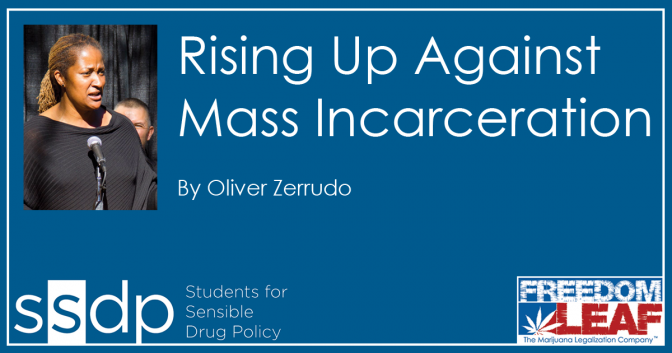Rising Up Against Mass Incarceration

By Oscar Zerrudo
California is no stranger to mass incarceration. From overcrowded public jails to the growing private prison industry, the Golden State has clearly endorsed imprisonment as a method of economic gain.
Due to this reality, activist organizations in the state have mobilized broad coalitions and formed passionate lobbying and advocacy groups in support of fighting prison expansion, and they continue to critique the status quo of punitive incarceration and the present justice system. Groups like Californians United for a Responsible Budget, Critical Resistance and the Ella Baker Center for Human Rights have been organizing Californians to develop a new and nuanced approach to how and why prison expansion is bad for the public interest.
The approved state budget for 2016–2017 calls for increased spending—and economic reliance—on the prison system, which housed 129,000 inmates in 2015. In the near future, California is expected to invest $270 million in large-scale jail construction projects, extend contracts for private prisons and hire more guards; local jails and related facilities have access to large pools of funds to build new facilities.
Efforts are being made to end California’s dependence on incarceration. State Senators Holly Mitchell and Loni Hancock have advocated for fewer punitive measures in the criminal justice system, and more sensible policy when dealing with those in trouble with the law. They have introduced the RISE (Repeal Ineffective Sentence Enhancements) Act, SB 966, which seeks to do away with the three-year sentence enhancement for any prior drug-related convictions.
The goal of enhancement is to deter street-level drug dealing and reduce the availability of illegal substances. However, like most efforts brought about by prohibitionist tactics, these enhancements have caused more harm than good, especially for communities of color. While SB 966 has yet to pass into law, legislation like this is a huge step in the right direction.
Historically, politicians have made careers based on tough-on-crime stances. The rhetoric of locking up the “bad guys” in order to clean up the streets has long had positive appeal with the voting public. But now, with the efforts of elected officials like Mitchell and Hancock, a new political direction is evolving with the purpose of decreasing, defunding and deconstructing the current structures and policies that mandate punitive punishment in the state.
SB 966 shows that, in the midst of political positioning that favors mass incarceration, positive resistance can still be marshaled against prison expansion.
If you enjoyed this Freedom Leaf article, consider subscribing today!
